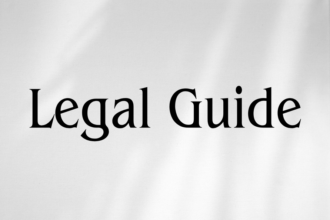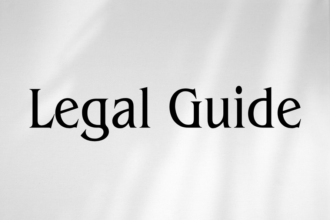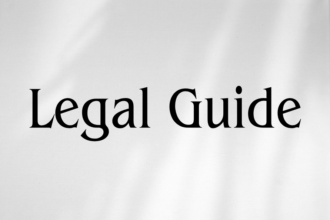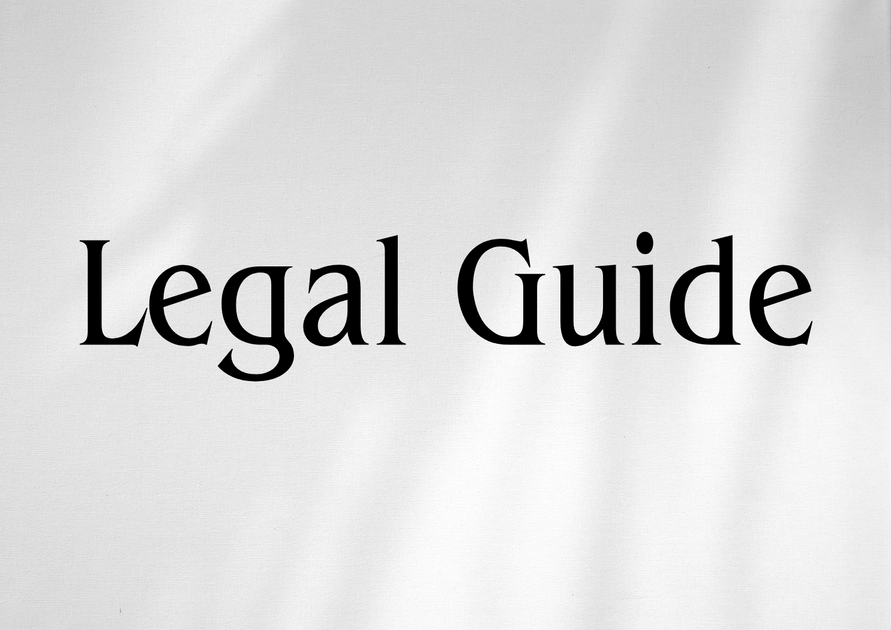Introduction
The United Arab Emirates (UAE) boasts one of the world’s most dynamic and strategically significant aviation markets. As a global gateway between East and West, the UAE’s airspace, airlines, and airports are integral to its economic ambitions, tourism sector, and international connectivity. Over recent years, the UAE government has enacted several substantial reforms in aviation law, driven by the need to address regulatory modernisation, technological innovation, and the evolving landscape of global aviation security and safety.
This comprehensive legal overview is designed for C-suite executives, business owners, HR managers, aviation professionals, and in-house legal teams seeking actionable insights into the nuances of UAE aviation law, as updated for 2025. We analyse the layers of federal and emirate-level regulation, explore practical compliance strategies, and highlight where recent legislative decrees—especially Federal Decree-Law No. 20 of 2022 and accompanying cabinet resolutions—have shifted the legal landscape. This expert guide provides clear analysis, risk assessment, and real-world consultancy value to empower organisations navigating the UAE’s complex aviation legal framework.
Table of Contents
- Scope and Regulatory Framework of UAE Aviation Law
- Key Laws, Recent Federal Decrees, and Cabinet Resolutions
- Aviation Safety, Security, and Emerging Technologies
- Aircraft Registration and Operational Licensing in the UAE
- Liability, Consumer Rights, and Insurance Obligations
- Employment, Training, and Emiratisation in Aviation
- Customs, Emirate-Level Regulation, and Special Free Zones
- Risks of Non-Compliance and Legal Risk Mitigation Strategies
- Future Trends and Recommendations for UAE Aviation Compliance
- Conclusion
Scope and Regulatory Framework of UAE Aviation Law
1. The Structure of Aviation Law in the UAE
Aviation in the UAE is regulated primarily at the federal level, coordinated by the General Civil Aviation Authority (GCAA), underpinned by associated federal decrees, laws, and international conventions. Ancillary provisions may originate from individual emirates or free zones, each addressing airport operation, customs, or commercial activities within their jurisdictions.
| Regulatory Layer | Authority/Instrument |
|---|---|
| Federal | GCAA, Federal Decree-Laws, Cabinet Resolutions |
| Emirate Level | Department of Civil Aviation (e.g., Dubai DCA, Abu Dhabi DCA) |
| International | ICAO Conventions, Bilateral Air Services Agreements |
Key Provisions:
- General Civil Aviation Authority (GCAA): The principal UAE regulator, established by Federal Law No. 4 of 1996, responsible for licensing, airworthiness, airport safety, and enforcement.
- Federal Decrees and Cabinet Resolutions: The main framework governing operations, safety, liability, consumer protection, and more.
- International Obligations: The UAE is a signatory to major conventions (e.g., Chicago Convention 1944), ensuring alignment with global standards.
2. Recent Developments: Why 2025 Is a Key Year
Reforms such as Federal Decree-Law No. 20 of 2022 (the updated Civil Aviation Law) and several 2023–2025 GCAA Ministerial Guidelines have sharpened regulatory focus on digitalisation, drone regulation, safety audits, Emiratisation, and alignment with best international practices. Stakeholders must be alert to stricter penalties and new compliance requirements.
Key Laws, Recent Federal Decrees, and Cabinet Resolutions
1. Core Statutes and Legal Evolution
| Key Statute/Instrument | Main Provisions/Scope | Recent Update |
|---|---|---|
| Federal Law No. 20 of 1991 (Superseded) | Basic aviation regulation, safety, airspace control | Replaced by Law No. 20 of 2022 |
| Federal Decree-Law No. 20 of 2022 | Modernised safety, security, drone regulation, aviation offences | Major overhaul with digitalisation, harsher penalties |
| Cabinet Resolution No. 56 of 2023 | Drone operations, permits, enforcement | Comprehensive UAS/UAV framework |
| GCAA Safety Directives and Circulars | Operational procedures, COVID-19 rules, safety audits | Frequent updates, especially post-pandemic |
| Emirate-level aviation decrees | Airport ops, building controls, safety | Varies by emirate (e.g., Dubai Airport Laws) |
2. Key Updates in Federal Decree-Law No. 20 of 2022
- Expanded liability provisions for carriers, operators, and airport authorities
- Stricter security protocols (including cybersecurity and unmanned aircraft security)
- Comprehensive licensing regime for drones (UAS/UAVs), with clear distinction between commercial and recreational use
- Detailed criminal offences for interference, unauthorized access, or safety infringements
- Digitalisation of applications for aircraft registration, operator licences, and documentation
Consultancy Insight: All enterprises, whether airlines, groundhandlers, or tech service providers, must adapt internal policies to reflect these expanded legal obligations and review contracts in light of new liability regimes.
3. Comparison: Previous vs. Current UAE Civil Aviation Law
| Aspect | Old Law (1991) | Current Law (2022) |
|---|---|---|
| Regulation of Drones | Not addressed | Detailed UAS/UAV regulatory chapter |
| Carrier Liability | Limited and ambiguous | Specific, capped but expandable per incident/severity |
| Digital Applications (Licences, Permits) | Manual, slow | Digital submissions and tracking now mandatory |
| Security Offences | Basic, aviation-centric | Covers cybersecurity, interference, unlawful acts |
| Penalties | Lower, less defined | Stiffer, with enhanced administrative enforcement |
Aviation Safety, Security, and Emerging Technologies
1. Safety Oversight and the Role of the GCAA
The GCAA conducts rigorous safety oversight through periodic audits, certification, and investigations (see GCAA Safety Audit Protocols, 2024). Mandatory reporting of incidents, compliance with GCAA airworthiness directives, and strict adherence to IOSA/ISAGO international audits is required of all operators.
2. Security Protocols: Physical and Cybersecurity
Federal Decree-Law No. 20 of 2022 and subsequent GCAA directives mandate:
- Multi-layer airport and aircraft security
- Enhanced screening/ID verification for passengers and cargo
- Mandatory vulnerability assessments for airport IT systems and electronic flight systems
3. Drone and UAS Regulation
- Commercial Drones: Permits from the GCAA under Cabinet Resolution No. 56 of 2023. Strict geographic restrictions, monitoring, and airspace safety integration.
- Recreational Drones: Must comply with approved zones, weight, altitude restrictions, and “no-fly” listings by Emirate DCAs and the GCAA.
Example Scenario: A logistics firm wishing to deploy drones for last-mile delivery in Abu Dhabi must formally apply, conduct safety risk assessments, and comply with geofencing rules and GCAA/DCA licensing. Non-compliance can lead to significant fines or the grounding of operations.
Visual Opportunity:
Suggested Visual: A compliance checklist diagram illustrating required steps for drone licensing—application, safety assessment, operational permit, and digital registration.
Aircraft Registration and Operational Licensing in the UAE
1. Aircraft Registration Requirements
All aircraft operating in UAE airspace must be registered with the GCAA per Federal Decree-Law No. 20 of 2022 (Articles 4–10). Owners/operators must provide:
- Proof of legal ownership/leasing agreement
- Aircraft type certificate and airworthiness documents
- Insurance proof (as per minimum cover stipulated by Cabinet Resolutions)
- Emirate-level DCA approvals, where applicable
Digital registration processes have improved efficiency, but accuracy and timely renewals are paramount—errors may result in grounding.
2. Commercial Operator Licensing
- Air Operators Certificate (AOC): Required for scheduled carriers, charter services, and some private operators.
- Special Licences: For cargo, VIP transport, training flights—may require secondary DCA approval.
- Continuous GCAA oversight on operational safety, maintenance, and crew certification.
3. Penalties for Non-Compliance
| Non-Compliance Risk | Penalty (2024-2025 UAE Law) |
|---|---|
| Unregistered aircraft operation | Immediate grounding, AED 500,000 fine, potential criminal charges |
| Invalid/Expired operator licence | Route revocation, operational suspension, fines up to AED 1 million |
| False documentation | Prosecution, licence blacklist, liability for damages |
Liability, Consumer Rights, and Insurance Obligations
1. Carrier and Operator Liability
The UAE aligns with the Montreal Convention (ratified by Federal Decree No. 13 of 2018) and builds upon it with local consumer protection in Federal Decree-Law No. 20 of 2022:
- Strict liability for passenger injury or death, delay, and baggage loss—up to defined compensation caps but subject to higher payments if gross negligence is established.
- Obligations for clear terms in passenger tickets and contracts of carriage—no waivers of mandatory protections allowed.
- Mandatory insurance: All operators must maintain third-party liability, passenger liability, and hull insurance per GCAA minimums.
Consumer Rights and Dispute Resolution
- Complaints: The GCAA Consumer Protection Division handles aviation complaints, underpinned by Cabinet Resolution No. 91 of 2022.
- ADR and Litigation: Parties may use alternative dispute resolution through the GCAA or escalate to UAE courts for claims.
Case Study: A passenger on a Dubai–London flight suffers lost baggage. The airline must process the claim per Montreal/UAE law timelines. Failure to respond or compensate can trigger fines and customer remediation orders under Cabinet Resolution No. 91 of 2022.
Visual Opportunity:
Suggested Table: Compensation and claim timeframes for lost baggage, injuries, and delays under current UAE law and international conventions.
Employment, Training, and Emiratisation in Aviation
1. Labour Law Impact and Emiratisation
- As a strategic sector, aviation falls under both general UAE Labour Law (Federal Decree-Law No. 33 of 2021) and specialist directives.
- Cabinet Resolution No. 279 of 2022 mandates annual Emiratisation targets for airlines, airports, and service providers—backed by compliance audits and penalties for shortfall.
2. Crew Licensing, Training, and Background Checks
- Pilots, aircrew, and ATC officers require GCAA licensing, recurrent training, and security vetting.
- All training providers must be GCAA-certified, comply with simulator and classroom hour minimums, and maintain training records for inspection.
Practical Insight
Multinational firms must ensure local employment contracts, proper work permits, compliance with MoHRE onboarding requirements, and alignment with Emiratisation quotas—especially as random audits intensify in 2025.
Visual Opportunity:
Suggested Table: Minimum Emiratisation percentages by aviation business type (2025 mandate), with deadlines and related penalties.
Customs, Emirate-Level Regulation, and Special Free Zones
1. Customs and Border Protocols
UAE Federal Customs Authority coordinates passenger/cargo control, duty-free rules, and security search protocols. Free zones (e.g., Dubai Airport Free Zone Authority—DAFZA) grant additional exemptions but impose local customs processes and require strict anti-smuggling compliance.
2. Emirates’ Aviation Laws and Local Authorities
- Dubai Civil Aviation Authority (DCAA): Regulates Dubai airport operations, air traffic, and facility licensing, supplementing federal rules with local building codes and commercial regulations.
- Abu Dhabi DCA: Supervises Abu Dhabi airports’ commercial licences and expansion consents, often requiring federal-emirate cross-approvals.
Case Scenario: An aircraft MRO (maintenance, repair, and overhaul) business setting up at Dubai South must comply with both GCAA and DCAA licensing, zone-specific customs, and operate under DAFZA’s regulatory framework for employment and tax incentives.
Risks of Non-Compliance and Legal Risk Mitigation Strategies
1. Sanctions and Enforcement
- Financial penalties: Fines from AED 50,000 to AED 5 million depending on the infraction (e.g., drone breach vs. large-scale safety violation).
- Operational sanctions: Grounding, licence revocation, route bans, blacklisting of operators or aircraft.
- Criminal liability: Severe offences escalate to public prosecution, especially incidents impacting public safety or involving intentional interference.
2. Legal Compliance and Best Practice Strategies
| Compliance Recommendation | Implementation |
|---|---|
| Conduct regular legal audits of all aviation operations | Annual review by licensed UAE legal consultants, update documentation on GCAA portal |
| Update all policies to reflect latest decrees and resolutions | Immediate amendment after GCAA/Cabinet publication; ensure staff training |
| Digitise compliance records | Use GCAA-approved platforms for licence renewal, permits, incident reporting |
| Maintain insurance and legal liability checks | Quarterly cross-checks with insurance advisor; verify compliance with latest compensation limits |
| Prepare for GCAA/Emirate DCA audits | Appoint internal compliance officer and conduct mock audits |
Visual Opportunity: Checklist diagram of key annual compliance steps for aviation stakeholders.
Future Trends and Recommendations for UAE Aviation Compliance
Looking forward, UAE aviation law is set for even greater alignment with international best practices, the expansion of digital identity for crew/passengers, cybersecurity mandates, and robust oversight of drones and autonomous vehicles. We anticipate further expansion of Emiratisation, greater focus on environmental sustainability (carbon emissions reporting), and enhanced cooperation with global regulators.
Professional Recommendations for 2025 and Beyond
- Establish internal legal and compliance teams empowered to respond rapidly to GCAA directives.
- Engage proactively with the GCAA and Emirate DCAs on emerging technology pilots (e.g., eVTOLs, urban air mobility).
- Monitor for new Cabinet Resolutions and ensure all contracts include compliance warranties aligned with the latest law.
- Invest in ongoing compliance training for all airside and groundside staff.
Conclusion
The UAE’s aviation legal landscape has evolved rapidly, with 2025 marking a new era of modernised, digitally-enabled, and stringently enforced regulation. From comprehensive carrier liability rules and advanced drone frameworks to the aggressive pursuit of Emiratisation and compliance audits, the UAE stands at the forefront of global aviation governance.
For clients, the path forward is clear: remain proactive, invest in expert legal counsel, and build robust internal systems that can swiftly adapt to legislative change. Non-compliance carries immediate operational, reputational, and legal risk—while a compliant, forward-looking strategy ensures licensing security, reputational advantage, and commercial success in one of the world’s most strategic airspaces.
Firms are encouraged to seek regular legal review and compliance health checks from a qualified UAE legal consultancy to guarantee continued business excellence amid these reforms.




